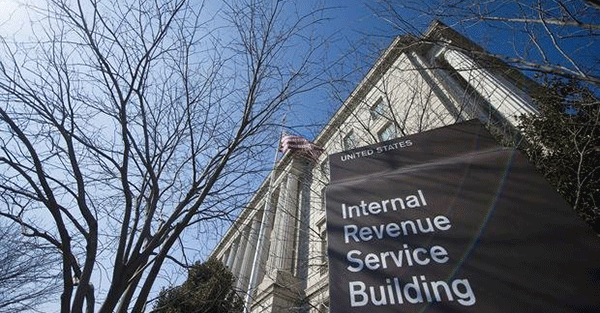On August 5, 1861, facing rapidly deteriorating economic conditions and a horrible defeat at Bull Run, President Abraham Lincoln signed the Revenue Act of 1861 into law.
It was the first time in US history that the federal government would charge an income tax on its citizens. But Lincoln felt that it was vital to fund what would become one of the most unconscionably costly conflicts in US history.
The original law in 1861 set a flat tax rate of 3% on incomes above $800.
(Using the gold price as a benchmark, this is equivalent to 42.26 ounces, or roughly $50,500 in today’s dollars. Not that there’s any inflation.)
The income tax was tweaked occasionally throughout the war, and it lasted for a few years afterwards to help fund reconstruction.
But it was ultimately lifted in 1873 during the administration of Ulysses S. Grant. And aside from a single episode in 1894, there would be no income tax in the United States of America for nearly 40 years.
Ironically, during this 40 year period the United States emerged as the largest, most powerful economy in the world.
And they achieved this with no income tax. No inflation. And very little public debt.
Today it’s entirely different. The dollar has lost over 99% of its value. And US debt is more than has ever been accumulated by any other nation in the history of the world.
Entitlement program costs are soaring. The US government’s own figures estimate that the long-term funding gap for Social Security, Medicare, etc. is at $40 trillion. Many private estimates are several times that amount.
This is obviously concerning.
But what’s even more concerning is the complete lack of care and attention this issue receives.
Politicians continue to spend money with a dangerous sense of entitlement.
They believe that since they’re “America” they can do whatever they want without consequence, as if the laws of the financial universe don’t apply.
And their judgement is clearly lacking.
They already borrow money and go deeper into debt just to pay the interest on the debt they already owe.
And yet they continue to spend, often on the most destructive things like bombs, drones, and war.
They throw money at failed programs. They hire armies of bureaucrats who make life more difficult for productive citizens. And they equip legions of police and armed enforcers to intimidate the population into submission.
All of this is ultimately supported by taxes. Your taxes.
You see, the creditworthiness of any nation is underpinned by its ability to raise and collect taxes.
If investors feel like a government has an intimidating-enough system of taxation that can bully citizens into compliance, they feel comfortable loaning a government money.
It’s a very simple calculus: when the US government goes into debt, YOU are the collateral.
Whether you realize it or not, whether you signed up for this obligation or not, you’re on the hook. You’re the guarantor.
It’s obscene when you think about it; these people have carte blanche to ruin the country, and then they stick you with the bill.
Remember this as you’re standing in line at the post office to send off that 1040.
Continuing to pay taxes into this system only encourages them.
Yeah sure there’s an election coming up in the Land of the Free. It’s looking to be another wide open field among a bunch of insiders who are responsible for causing all the problems.
This vote (as we’ll discuss down the road) is completely meaningless.
What is tremendously impactful, however, is how you ‘vote’ with your dollars.
Every day you are making an election. By choosing one brand over another in the supermarket, or by buying an iPhone versus an Android, you are essentially voting for the better candidate.
Over time, the good candidates who have a history of providing quality products and services rise to the top. And the bad candidates are starved of the resources they need to go on.
It’s time to starve these people of the resources they need. Continuing to pay them every year only encourages them. It sends a signal that we support their decisions.
Cutting off their resources is a far more effective strategy than checking a box in a voting booth.
No, I’m not suggesting that anyone commit tax evasion or stop filing a tax return. This is a one-way ticket to the jailhouse.
But I personally feel a moral obligation to arrange my affairs in a way which maximizes every deduction possible and to pay the absolute minimum that is required by law.
There are countless options… from using tax-deferred options like IRAs or foreign corporations, to even moving abroad.
US tax code, for example, provides a clear path for Americans to move overseas and pay no tax on the first $100,800 in foreign earned income.
Or you can move to Puerto Rico and pay absolutely nothing on investment income or corporate dividends.
Most people don’t realize how many options they have at their disposal to cut what they owe.
And in my mind, it not only makes obvious financial sense, but it’s one of the best weapons anyone has to fight back.








